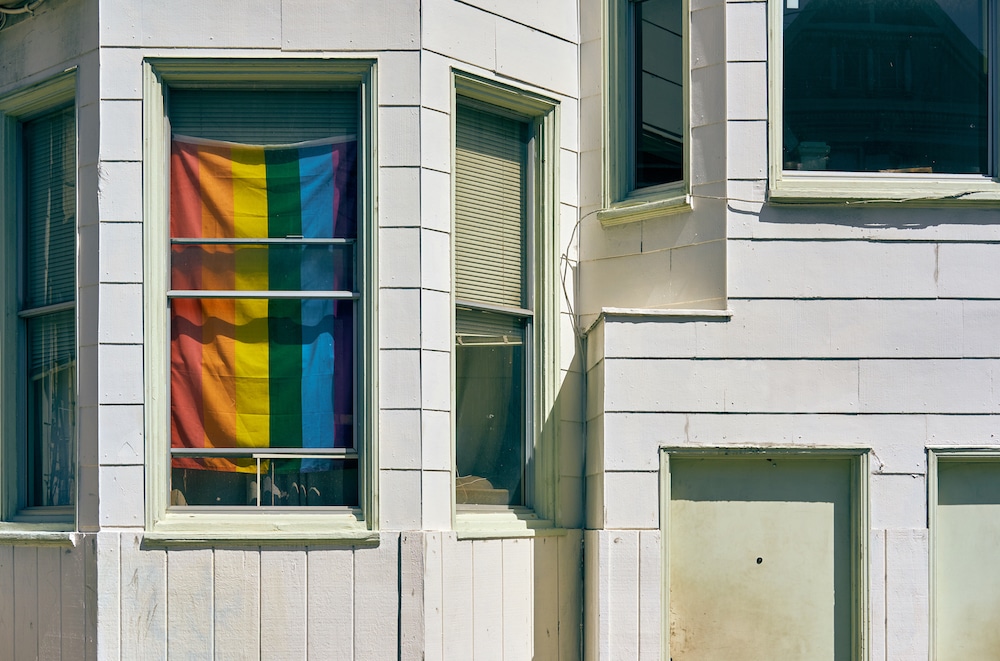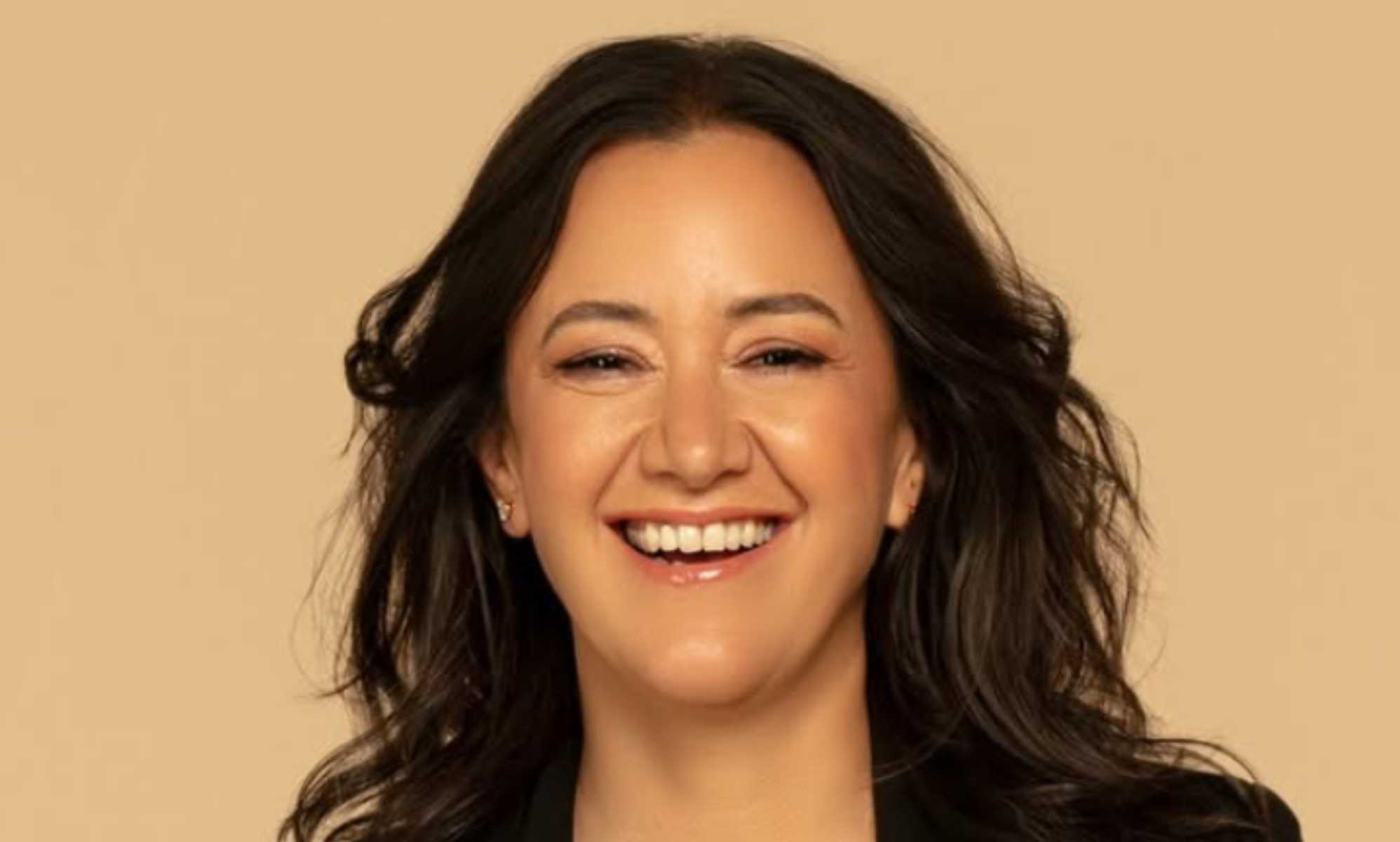Gay man helps queer families fleeing red states with ‘above ground railroad’
A lesbian couple hold keys to a new home. (Getty)
A Texas estate agent has developed a programme to help LGBTQ+ homeowners across the US “flee red [Republican] states”.
When broker Bob McCranie and his partner bought their first house together in 1998, the process was a painful series of micro-aggressions.
“The realtor who worked with us kept introducing us as brothers,” he told PinkNews.
“Then we couldn’t get insurance to cover both of us. You couldn’t have two men on the insurance policy, one of us had to be listed as a tenant.
“Our cable installer showed up and realised that there were two men living in the house and left, didn’t finish the cable install. We had to call the company back out and have somebody else do it.
“It’s not like somebody was beaten, you know? It wasn’t a hate crime. But it doesn’t give you any honour or any feeling of happiness as you’re going through this process of starting your relationship and living together. People aren’t recognising you.”
So when McCranie got into the estate agent business himself, he vowed to do things differently – “to serve everybody and give them the respect that they deserve”.
By 2009 he had founded Texas Pride Realty, an agency that markets itself to “people who don’t feel welcome in other places”.
Sadly, in the years that followed, the situation for LGBTQ+ people has got worse instead of better.

Republican hostility is increasing in Texas
Republican domination in Texas is not new. Since 1994, every statewide elected office in Texas has been held by a Republican, and both the State Senate and House of Representatives are Republican controlled.
But over the past few years, as in much of the US, anti-LGBTQ+ Christian conservatism has been on the rise.
In February 2022, Texas governor Greg Abbott ordered state officials to investigate families and medical professionals for “child abuse” for providing gender-affirming medical care to trans children.
Increasingly fearing for their futures, escaping the state is now a common conversation topic among LGBTQ+ Texans.
“If you affirm your child’s transness, then that’s considered abuse,” McCranie said.
“Any doctor or nurse or teacher who hears your child talk about being trans, and saying ‘mom and dad are great with it’, has to now call CPS and turn in the family.
“I just was like, ‘these people need help now’. They need help now. This is not a ‘maybe someday it’s gonna get bad’ thing, this is how it currently is.”
In response to this need, McCranie has launched Flee Texas, an initiative to discreetly help LGBTQ+ people sell their Texas property and move to safer states.
“We need to be the the agents who will show the house and not disclose the family makeup,” he said. “Because if you hire an agent from another brand, and they disagree with how you are raising your trans child, they could turn you in.”

But Abbott’s child abuse directive is not the only thing causing queer Texans to turn McCranie’s “above ground railroad”.
When Roe v Wade saw the right to abortion overturned in June, fear began increasing across the US that other Supreme Court decisions, like those that legalised same-sex marriage, enshrined the right to contraception or did away with gay sex bans, could be next in the firing line.
Despite these decisions, defunct Texas state law still defines marriage as between a man and a woman, and the state has never repealed its statute criminalising same-sex sexual activity. The state’s attorney general Ken Paxton has said he is “willing” to defend a ban on sodomy if the Supreme Court allows a challenge to the ruling.
The Texas Republican Party also voted in June to endorse a minimum age of 21 for all access to gender-affirming healthcare, indicating legislative attacks on LGBTQ+ Texans will not be stopping any time soon.
McCranie said: “Right now they have an abortion law in Texas that says after six weeks, if I suspect Sally had an abortion, and that her her friend Steve drove her across the state line to get it, I can sue civilly.
“I can sue Sally and Steve for $10,000. That’s how the state gets away with this this law, by saying, ‘we’re not enforcing the law, these are just citizens suing each other’.
“What’s going to happen when they take that law and put it on a copy machine and say that if I suspect that somebody’s a homosexual, I can sue them for $10,000.
“And this is not hyperbole. This is literally what they’re doing. I kind of have to pinch myself and go, ‘Bob, have you just gone crazy?’.”

LGBTQ+ people are under attack across the US, not just in Texas
After launching Flee Texas, Bob McCranie began receiving messages from LGBTQ+ people in other states where their rights were under attack.
At the same time, he received calls from agencies in states with protections for LGBTQ+ rights, offering their services to match queer families with safe homes.
McCranie decided to expand the initiative, changing its name from Flee Texas, to Flee Red States, providing assistance to LGBTQ+ families across the country.
“Some people will look at this and go, ‘well, he’s just a realtor trying to make money’,” he said.
“And yes, I have to pay my bills. But this is about our people. This is about what it’s going to be like in five years if we don’t do something now… I am just a student of history, and I just look at what’s going on.
“Back when I came out in 1992, being gay was illegal because the sodomy laws were in place. Lawrence v Texas is the case that overturned them, and [like Roe v Wade,] Lawrence v Texas is predicated on the 14th amendment.
“If we go back to being illegal people, sodomy laws were used to deny us housing and employment, what’s that going to do for homeownership?
“Let’s say that I’m selling a house, and the buyer finds out that it’s me and my partner or spouse, and they go, ‘well, I can really get this house cheaper, because they’re desperate to sell because they’re illegal’.
“What’s that going to do to our property rights and property value if we become illegal again?”
“I’m not trying to live in this dystopian world,” he added. “But I can’t not see it, because one thing leads to the other, and leads to the next.”






